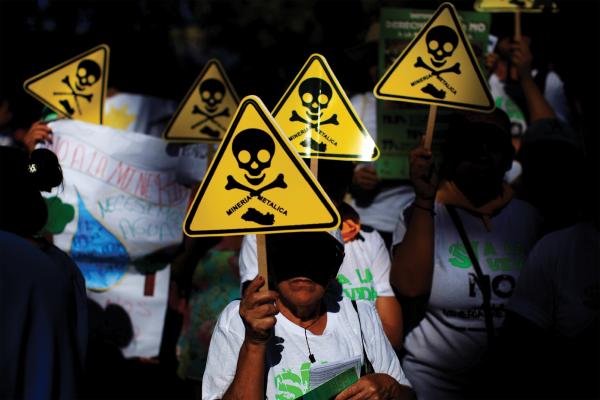LAST APRIL, El Salvador became the first country in the world to ban the mining of gold and other metals. The action grew out of a decades-long struggle to protect access to clean water and prevent pollution caused by mining projects.
The Catholic Church played a central role in the movement to end mining, which organized under the slogan Si a la vida, no a la mineria (“Yes to life, no to mining!”). An encyclical from Pope Francis provided inspiration, and San Salvador’s archbishop called on legislators to pass the anti-mining law, which the church was integral in writing. For many, it called to mind the actions of Archbishop Óscar Romero in El Salvador’s civil war decades before.
‘To work for the mines is to work for death’
Beneath the jungles and mountains that stretch from southern Mexico to Nicaragua lie untold mineral riches. Over the last two decades, transnational companies, drawn by the lack of regulation and the promise of huge profits, have sought to exploit these resources. But the rise of the extractive industries has triggered intense social conflicts, environmental destruction, and violence throughout the region.
Read the Full Article

